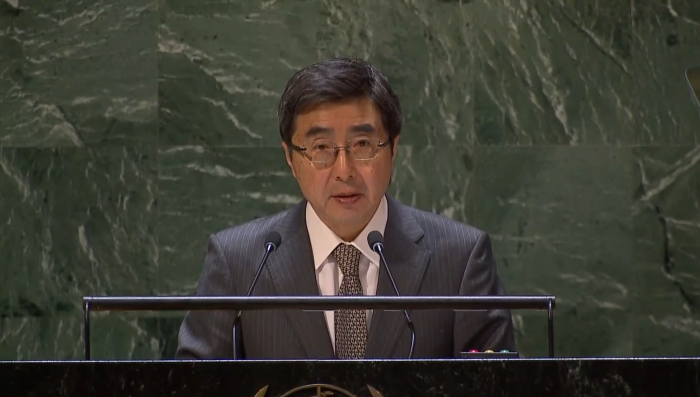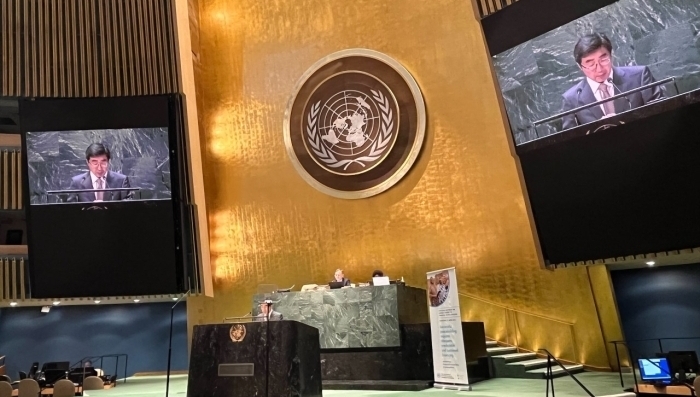平和構築の資金調達に関するハイレベル総会における石兼大使ステートメント
令和4年4月27日
 |
 |
Mr. President.
As stated in the very first sentence of the UN Charter, maintaining international peace and security is the primary purpose of the Organization. Prevention is the key to peacebuilding and sustaining peace, as emphasized in the Secretary-General’s “Our Common Agenda” report.
Prevention requires us to tackle the root causes of conflict across the humanitarian-peace-development nexus and to mobilize all relevant actors in the entire UN system and beyond. Bearing in mind that the issue of financing for peacebuilding should be addressed from such broad perspective, I would like to highlight three points that should guide our way forward.
First, effective use of resources. There is a severe competition over the limited resources among the actors engaged in various humanitarian and development activities. Peacebuilding financing must be directed to areas that bring about maximum impacts. One area we should focus on is institution building. Investing in building effective, accountable and inclusive institutions will nurture trust among people as well as between people and their government, and increase community resilience.
Second, broader and stronger partnerships. The financial needs for building peace is enormous, well beyond the portfolio of the Peacebuilding Fund (PBF) or even that of UN agencies, funds and programmes engaged in relevant activities on the ground. The core issue of financing for peacebuilding is how to initiate confluence of all financial resources from within the UN system and beyond, towards the shared strategy for sustaining peace. Potential sources outside the UN include international financial institutions, bilateral ODA, South-South and triangular cooperation, CSOs and private sector through innovative financing options. We should leverage further the convening power of the Peacebuilding Commission.
Third, preserving the strength of the PBF. The PBF is coveted by the implementing agencies because of its agility and flexibility to respond to the constantly changing realities on the ground. There is no wonder that the needs outpace resources. In considering future options for the Fund’s replenishment, we must bear in mind that the adequate, predictable and sustained resources should be pursued not at the expense of flexibility but by ensuring accountability. Japan has made voluntary contributions of over USD 60 million to the PBF since 2006, and has steadily been contributing to fulfill its pledge of USD 10 million for the 2020-2024 strategy.
To conclude, let me reassure you of Japan’s continued commitment to this important agenda.
Thank you.
